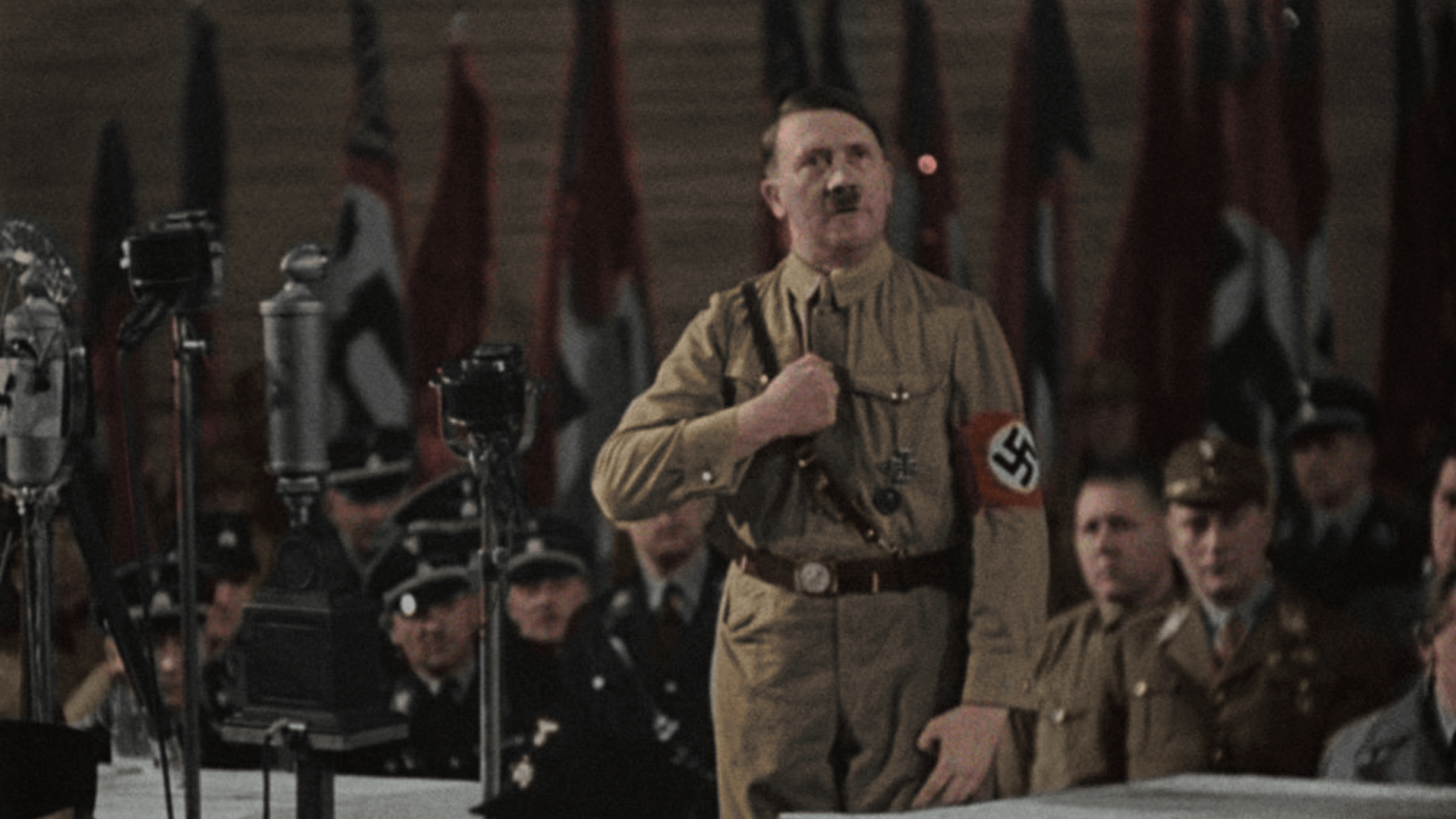Is this a Hitler documentary worth watching?
Joe Berlinger’s Netflix docuseries ‘Hitler and the Nazis: Evil on Trial’ is a lot better than it sounds

Hitler and the Nazis makes use of colorized archival footage — some from Leni Riefenstahl — as well as reenactments. Courtesy of Netflix
There is no documentary subject more urgent and more overexposed than Hitler and the Nazis.
So great is the glut of TV shows devoted to the Third Reich that you can take your pick of subgenres — a pop psychological profile of Hitler, National Geographic’s investigation into the Nazi fascination with the occult and fare that insists the Luftwaffe had help from space aliens.
But for all these offerings, the prospect of a Joe Berlinger series on Hitler, his advisors and their judgment at Nuremberg is worth taking note of, even as it joins an already busy Nazi section on Netflix.
Berlinger, an Oscar-nominee who, with his late directing partner Bruce Sinofsky helmed the Metallica documentary Some Kind of Monster and a slew of true crime films about human monsters like Ted Bundy, has something to add to the canon — and hopes to hook younger people who, according to polls, have critical blind spots about the Holocaust and its perpetrators.
In six parts, Hitler and the Nazis: Evil on Trial, explores the subject with rare depth, finding new dimensions to the tyrant and his co-conspirators. Corralling historians like Omer Bartov, Devin Pendas and Anne Berg, Berlinger takes us through the stations of Hitler’s rise from penniless landscape artist to Führer, the development of the Final Solution and, making use of newly available audio recordings from the Nuremberg trials, the aftermath.
Wherever possible, Berlinger finds archival footage — almost always colorized — and uses audio testimony from witnesses and survivors. An exception to this fidelity is the treatment of William L. Shirer, the CBS correspondent and author of Rise and Fall of the Third Reich, who died in 1993 but nevertheless functions as a main character witnessing the Nazi ascent. Every word he speaks comes from his writings, but his voice, when not ripped from radio broadcasts or interviews, was conjured with “voice recreation technology,” as the series tells us in the opening minutes.
If this sounds like a gimmick — or even like some scandals in recent documentaries like Morgan Neville’s Anthony Bourdain film or one on Albert Speer that was less than forthcoming about its use of actors — viewers soon get acclimated to it. It proves immersive.
Perhaps too aware of the risks of deception, actors who recreate scenes from Nuremberg or at the Eagle’s Nest don’t try to match the real audio dubbed over them. This can at times yield cartoonish effects, as the rail-thin man playing Hitler expectorates and foams at the mouth and Chief of Reich Security Reinhard Heydrich is shown in a clip from the archive, looking the Aryan ideal, only for his actor stand-in to change hair color. (“Ride of the Valkyries” may be overused as underscoring, but Wagner gets his due in the formation of Hitler’s ideology.)
If the results are at times schlocky — and, in a recreation of the mass murders at Babyn Yar bordering on poor taste — the commentary given to the events is rarely less than fascinating and thorough.
Without putting too fine a point on why we’re still hung up on the Nazis (Shirer’s granddaughter mentions how he warned “democracy was important and always in danger” ), Berlinger and his experts dispel the myth of Hitler as uniquely competent or evil.
Talking heads tell us he was lazy, waking up late and spending a lot of time watching movies. He preferred to float abstract ideas and leave it to his deputies to develop policy around them. Ever paranoid and conspiratorial, he believed Jews to be both the avatars for global communism and capital. He was actually fine with gay people in his ranks until they displeased him.
If there are contemporary lessons in Hitler’s largely uncontested annexation of regions that contained ethnic Germans (the Sudetanland could be Crimea by another name), we’re left to fill in the blanks. But what the series does better than almost any of its ilk is explain how a liberal democracy fell victim to an upstart political party with fringe beliefs.
Hitler and the Nazis suggests that the most crucial villain in this story may not be Hitler himself, but the conservative politician Franz von Papen, who built a coalition with the Nazis believing he could tame them. Such an establishment enabler, and the many more of lesser influence who marched in lockstep with the Nazi program so long as the economy was recovering, made these horrors possible.
Without people like Papen, there would be no Hitler documentaries to watch. As long as people like him exist, this one should be required viewing.

















